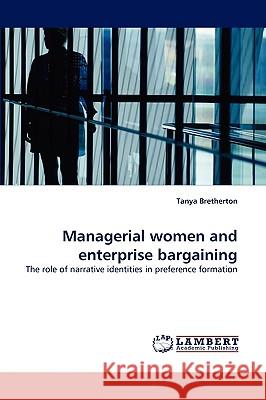Managerial women and enterprise bargaining » książka
Managerial women and enterprise bargaining
ISBN-13: 9783838338927 / Angielski / Miękka / 2010 / 264 str.
This book considers key assumptions underlying research on women and enterprise bargaining, in light of unique qualitative data from the banking sector. Previous research in this field has argued that women workers will approach enterprise bargaining in a distinctly different manner to men workers. A drawback associated with much of this research however, has been its sole emphasis on women workers, without a concurrent analysis of 'male' approaches to bargaining or indeed, a refined definition of what would constitute 'male' bargaining. This book positions enterprise bargaining preferences in the context of literature on narrative identities. Four distinctly different narrative identities are found among men and women managers - the bureaucratic career narrative, diplomatic, classic market narrative and institutional market narrative. In particular, acuity of risk and strategies to minimise risk are handled differently by each of the narrative identities.
This book considers key assumptions underlying research on women and enterprise bargaining, in light of unique qualitative data from the banking sector. Previous research in this field has argued that women workers will approach enterprise bargaining in a distinctly different manner to men workers. A drawback associated with much of this research however, has been its sole emphasis on women workers, without a concurrent analysis of male approaches to bargaining or indeed, a refined definition of what would constitute male bargaining. This book positions enterprise bargaining preferences in the context of literature on narrative identities. Four distinctly different narrative identities are found among men and women managers - the bureaucratic career narrative, diplomatic, classic market narrative and institutional market narrative. In particular, acuity of risk and strategies to minimise risk are handled differently by each of the narrative identities.











